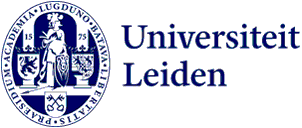
‘Nearly every research study has a governance dimension, but academics know very little about it’
The annual conference of the Global Transformations and Governance Challenges (GTGC) interdisciplinary research programme will take place in The Hague on 7-9 June. As a researcher at Leiden University, why should you be there? ‘Nearly every research study has a governance dimension, but academics often know very little about it’, says programme chair Jan Aart Scholte.
What is the best way to address global changes (in areas such as the climate, the economy and technology) at the governance level? This is the central question of the annual GTGC conference, to be held this year in The Hague on 7-9 June. What can Leiden University academics ‘gain’ from these days? We explore some of the highlights of the conference with Prof. Jan Aart Scholte.

International policymakers coming to The Hague
‘From local authority representatives to international policymakers: they’re all coming to the GTGC conference’, says Scholte. ‘The opening session on the future of multilateralism, for example, is a round table that includes representatives of the UN Secretary-General’s High-Level Advisory Board, which recently published a new policy report on effective and inclusive global governance. They’re going to engage in discussion with academics who recently published their own findings on what is needed to make global governing bodies more effective. And the other round tables will also have high-profile participants: the discussion on whether sanctions actually work will include the political scientist Tom Biersteker; the session about climate will feature representatives of the Port of Rotterdam Authority, members of the Lower House of the Dutch parliament and a European delegation.’
Extensive academic network in attendance
‘Global Transformations and Governance Challenges is an interdisciplinary research programme with links to several different faculties. This means that a wide range of Leiden University representatives attend our conferences: it is a good opportunity for academics to expand their networks. And this year the conference has received more than a hundred papers from scholars both within and outside the University.’
‘Governance’ is an important aspect of many research themes, but academics still know very little about it
‘Academics from a wide range of disciplines are already coming to the conference, but some angles are still quite under-represented. Mathematics, physics, archaeology, medicine... people from these disciplines could gain a lot from this conference,’ says Scholte. ‘Whether it’s the climate, heritage or health care: there’s a ‘governance’ aspect to all these themes. But researchers often know very little about this aspect, at both the national and global levels. The conference should offer them many different insights.’
To register or to learn more, please see here.
About Global Transformations and Governance Challenges
Ongoing global developments have created new challenges for our societies. Take, for example, the need for coordinated international approaches to pandemics, global warming and migration; or the importance of benefiting from new technologies while also tackling their potential negative effects. Leiden University’s Global Transformations and Governance Challenges interdisciplinary research programme explores how we can address these global transformations in democratic, effective, fair, peaceful and sustainable ways.
